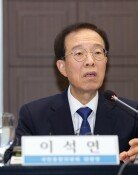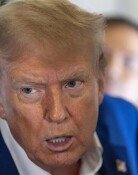[Editorial] Ruling Party Weakens Koreas Negotiation Power against Pyongyang
[Editorial] Ruling Party Weakens Koreas Negotiation Power against Pyongyang
Posted April. 21, 2005 23:22,
If we listen to the planned countermeasures for the North Korea nuclear crisis discussed by the ruling party and the government, I wonder if they are competent enough to manage Korea`s security on which our people`s wealth and lives depend.
To begin with, it is ambiguous whether the conclusion of the party-government consultative conference is hard-line, moderate, or eclectic. Each person explains the conferences content differently. If this is a "dilution tactic" targeting North Korea or the U.S., it is real liability, and if it is not, it is striking incapability.
North Korea`s actions have crossed the line, and the U.S.`s countermeasures are so adamant as to be dangerous. Pyongyang`s "brinkmanship tactics" became obvious when its Foreign Office officially announced its possession of nuclear weapons in February. Following its recent stoppage of operation of the five MW nuclear reactors in Youngbyun, it has threatened to "reprocess fuel-rods for nuclear weapons use." The U.S. did not step back but rather added fuel to the fire by playing the card of submitting the issue to the U.N. Security Council.
Due to North Korea`s unilateral withdrawal from them, the six-party talks have been stalled for 10 months already, and the situation is continuing to spiral down. If Pyongyang is intending to make its nuclear possession a fait accompli" as a negotiation card instead of employing equidistant diplomacy, the situation will become difficult and irreversible.
In such an acute and delicate situation, Uri Party representative and chairman of the Number Two Policy Coordination Commission Kim Seong-gon announced the result of the party-government consultative conference as if he was determined to "oppose submitting the North Korea nuclear issue to the Security Council." Yet after an hour, the Unification and Foreign ministries made different voices. The former said that "the government did not oppose submitting the North Korea nuclear issue to the Security Council. The party and the government had different ideas," while Foreign Minister Ban Ki-moon denied the ruling party`s announcement by asking back, "Who opposed it?"
It was a scene in which the government and the ruling party depreciated their negotiation capability on their own and showed disorganization in front of their counterpart. Isn`t the North Korea nuclear crisis a difficult situation that may or may not be resolved, even if Korea and the U.S. join hands and the government and the ruling party`s voice is one refined voice?
Political negotiation is a persuasive process on the premise of power, and its success cannot be guaranteed without sophisticated strategy and elaborate preparation. It is obvious that even prospective success can degenerate into a fiasco if the government and the ruling party exhibit hasty and unripe tactics and remain at a loss from implementing a wait-and-see policy as they have displayed previously. They should not respond to the utmost important national mission and stalemated North Korea nuclear crisis like this.



![[속보]美 “미국인은 이란 당장 떠나라” 대사관 긴급 공지](https://dimg.donga.com/c/138/175/90/1/wps/NEWS/IMAGE/2026/01/13/133147285.1.jpg)



